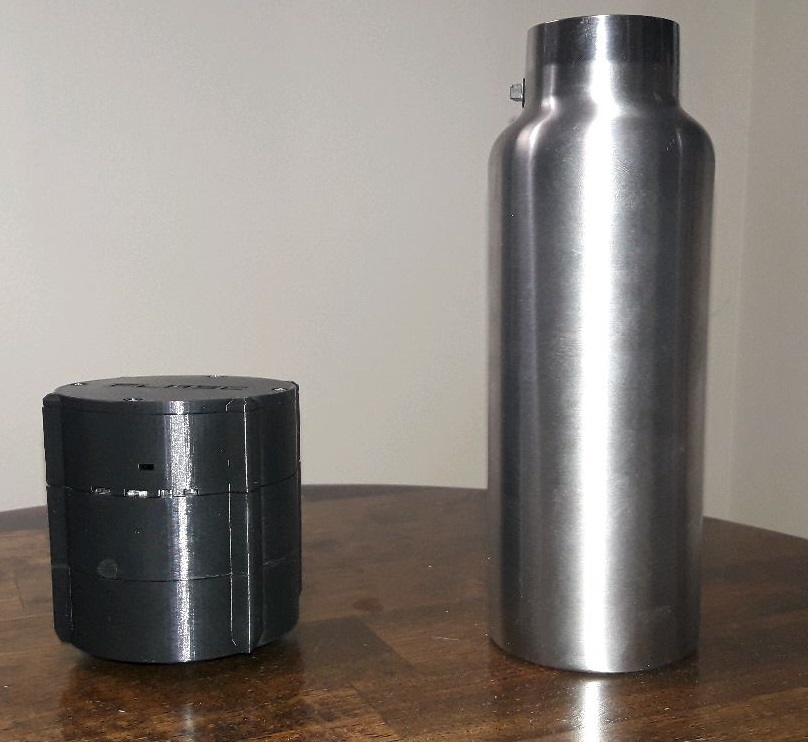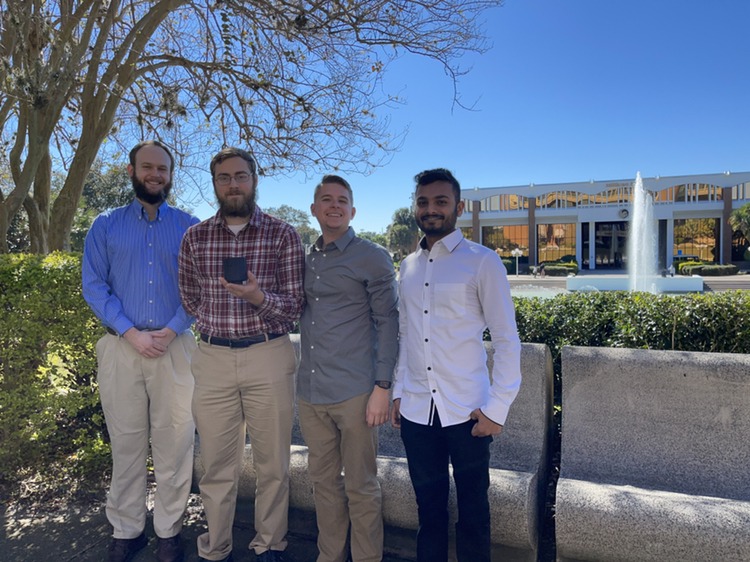A single sip of improperly treated hydration can expose people to various gruesome diseases including typhoid, cholera, salmonellosis, and a myriad of other unpleasant maladies. According to the CDC, between 30 and 70 percent of global explorers suffer from traveler's sickness. Of those individuals, more than 80 percent fall ill due to bacterial pathogen. This project is intended to assist individuals by ensuring that drinking water is clean in everyday life, global travel, and times of crisis such as floods, power outages, and hurricanes. The resulting water is purged of biological contaminants and tested for water clarity (an indicator of water quality).
The FLASC is ideal for jetsetters and preppers alike due to its compact, convenient design and long battery lifespan. This product uses light to sanitize its contents and verify that the user isn't drinking mud or fluoride-contaminated water. The user can interact with two buttons on the bottle itself to activate either function or export the battery life.
Once the water has been sanitized and analyzed, the device alerts the user using onboard indicator LEDs. The corresponding data can then be transmitted to the user's smartphone via a Bluetooth connection. Other products on the market only boast a singular function, but FLASC performs both and can be made available to consumers at a competitive price point. This device also implements wireless charging technology to both ensure greater water resistance and ease of use. The bottle offers an upgrade from your standard insulated jug and appeals to tech-enthusiasts with its laser-powered analyzer and UVC sanitizer system. The electro-optical systems also have reusability not present in chemical tests and sanitizers, as only electricity is needed for device operation.

